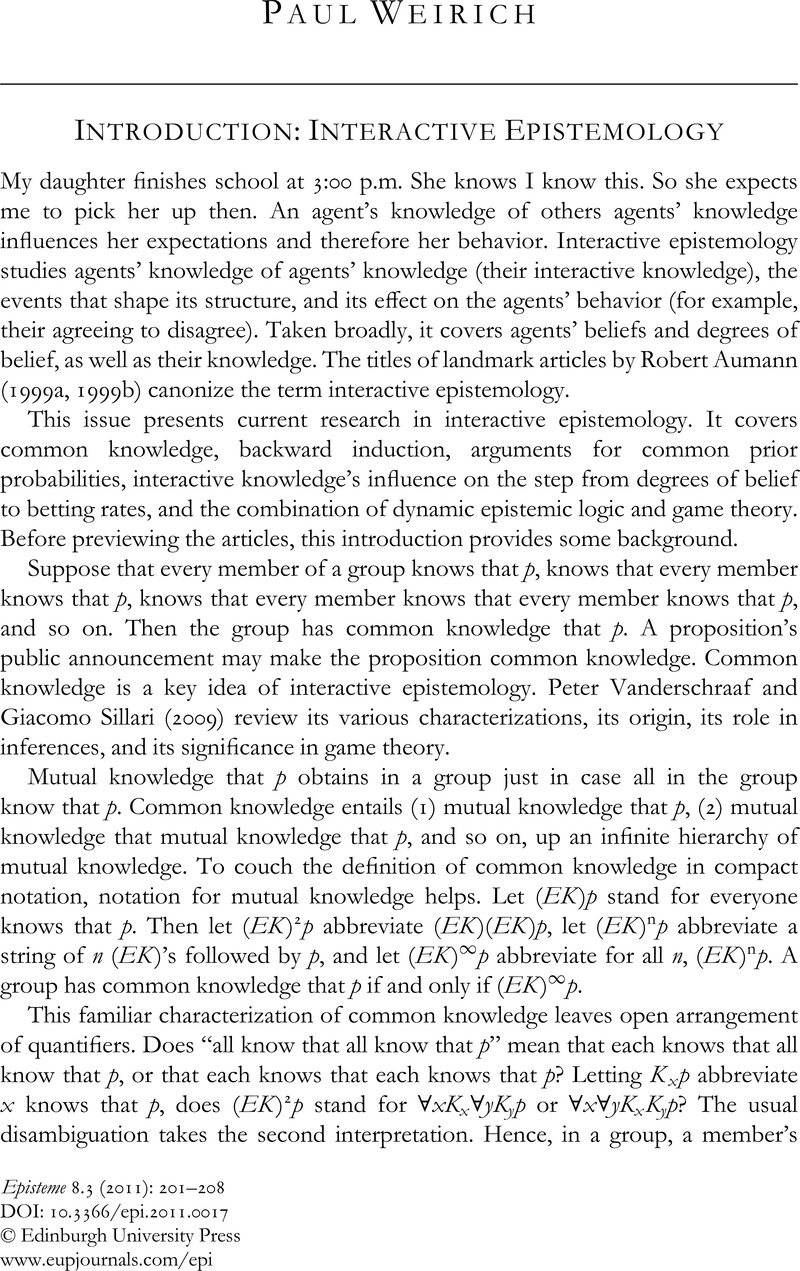Crossref Citations
This article has been cited by the following publications. This list is generated based on data provided by Crossref.
Brown, Vivienne
2019.
INTERSUBJECTIVE BELIEF.
Episteme,
Vol. 16,
Issue. 2,
p.
139.
Okorie, David Iheke
and
Gnatchiglo, Joel Miworse
2023.
Game of strokes: Optimal & conversion strategy algorithms with simulations & application.
Heliyon,
Vol. 9,
Issue. 12,
p.
e23073.



